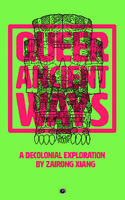Queer Ancient Ways: A Decolonial Exploration
| dc.contributor.author | Xiang, Zairong | |
| dc.date.accessioned | 2019-03-26 23:55 | |
| dc.date.accessioned | 2020-01-23 14:09:07 | |
| dc.date.accessioned | 2020-04-01T10:37:41Z | |
| dc.date.available | 2020-04-01T10:37:41Z | |
| dc.date.issued | 2018 | |
| dc.identifier | 1004700 | |
| dc.identifier | OCN: 1100542082 | en_US |
| dc.identifier.uri | http://library.oapen.org/handle/20.500.12657/25395 | |
| dc.description.abstract | Queer Ancient Ways advocates a profound unlearning of colonial/modern categories as a pathway to the discovery of new forms and theories of queerness in the most ancient of sources. In this radically unconventional work, Zairong Xiang investigates scholarly receptions of mythological figures in Babylonian and Nahua creation myths, exposing the ways they have consistently been gendered as feminine in a manner that is not supported, and in some cases actively discouraged, by the texts themselves. An exercise in decolonial learning-to-learn from non-Western and non-modern cosmologies, Xiang’s work uncovers a rich queer imaginary that had been all-but-lost to modern thought, in the process critically revealing the operations of modern/colonial systems of gender/sexuality and knowledge-formation that have functioned, from the Conquista de America in the sixteenth century to the present, to keep these systems in obscurity. At the heart of Xiang’s argument is an account of the way the unfounded feminization of figures such as the Babylonian (co)creatrix Tiamat, and the Nahua creator-figures Tlaltecuhtli and Coatlicue, is complicit with their monstrification. This complicity tells us less about the mythologies themselves than about the dualistic system of gender and sexuality within which they have been studied, underpinned by a consistent tendency in modern/colonial thought to insist on unbridgeable categorical differences. By contextualizing these deities in their respective mythological, linguistic, and cultural environments, through a unique combination of methodologies and critical traditions in English, Spanish, French, Chinese, and Nahuatl, Xiang departs from the over-reliance of much contemporary queer theory on European (post)modern thought. Much more than a queering of the non-Western and non-modern, Queer Ancient Ways thus constitutes a decolonial and transdisciplinary engagement with ancient cosmologies and ways of thought which are in the process themselves revealed as theoretical sources of and for the queer imagination. | |
| dc.language | English | |
| dc.subject.classification | thema EDItEUR::J Society and Social Sciences::JB Society and culture: general::JBS Social groups, communities and identities::JBSJ LGBTQ+ Studies / topics | en_US |
| dc.title | Queer Ancient Ways: A Decolonial Exploration | |
| dc.type | book | |
| oapen.identifier.doi | 10.21983/P3.0235.1.00 | |
| oapen.relation.isPublishedBy | 979dc044-00ee-4ea2-affc-b08c5bd42d13 | |
| oapen.relation.isbn | 9781947447943 | |
| oapen.relation.isbn | 9781947447936 | |
| oapen.collection | ScholarLed | |
| oapen.pages | 266 | |
| oapen.place.publication | Brooklyn, NY | |
| oapen.identifier.ocn | 1100542082 |

